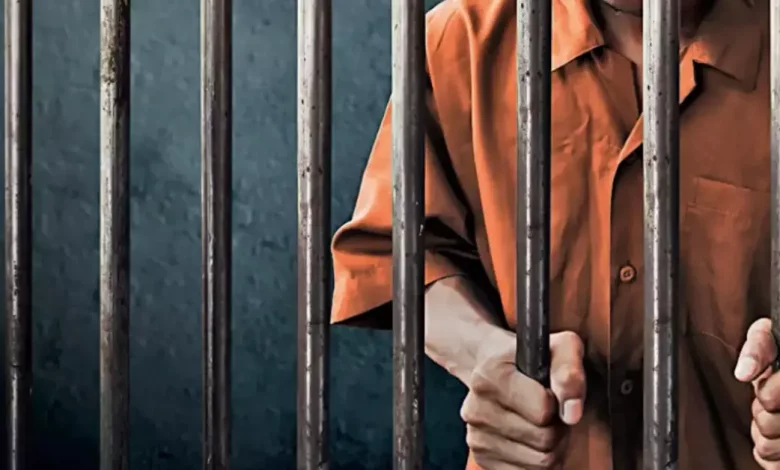
Context – A recent Supreme Court intervention addresses the substandard treatment of prisoners, emphasizing their entitlement to Fundamental Rights despite incarceration. The SC has underscored that the prisoners, whether convicts, undertrials or detainees, maintain their humanity and constitutional rights, including the right to life, throughout their incarceration.
The prison system in India faces multiple hindrances in ensuring these rights are not infringed upon. To address these concerns, it is imperative to explore and implement progressive solutions that prioritize human rights, rehabilitation, and social integration within the prison system.
Prevailing Issues and Challenges
- At present, India’s prisons are plagued by overcrowding, with facilities often operating well beyond their intended capacity. This overcrowding exacerbates issues related to hygiene, healthcare, and safety within prisons, leading to a deterioration of living conditions for inmates.
- Inadequate rehabilitation and reintegration efforts further compound the challenges faced by incarcerated individuals, hindering their ability to successfully reintegrate into society upon release.
- Discrimination and stigmatization against ex-convicts often result in barriers to employment, housing, and social inclusion, perpetuating cycles of marginalization and vulnerability.
- Another significant challenge is the shortage of prison staff. Despite a sanctioned staff strength of around 91,181, the current strength stands around 63,578. This shortfall complicates the task of effective management, often resulting in the neglect of crucial aspects like the mental health of prisoners and ensuring that they are housed under humane conditions.
- Prison authorities spend an average of Rs 10,474 per inmate annually, covering food, clothing, medical expenses, education and welfare. Despite a budget of Rs 6,818 crore, only Rs 5,958 crore was spent in 2019-20 on prison services, leading to shortages of medical staff, particularly mental health professionals. This underuse underscores the pressing need for reforms.
- Police superintendents often fail to grant emergency leaves for significant life events. Some superintendents consider humanitarian grounds, but extraordinary situations are often overlooked.
Solutions and Reforms
Addressing Overcrowding:
Implementing measures to reduce overcrowding in prisons is paramount. This includes investing in alternative sentencing options such as community service, probation, and diversion programs for non-violent offenders. Additionally, efforts to expedite judicial processes and reduce pre-trial detention periods can help alleviate congestion within prison facilities.
Improving Living Conditions:
Enhancing the infrastructure and amenities within prisons is essential to ensure dignified living conditions for inmates. Adequate provisions for sanitation, healthcare, and nutrition must be prioritized to safeguard the health and well-being of incarcerated individuals. Moreover, promoting humane treatment and respect for human rights within prisons is imperative to uphold the dignity and rights of inmates.
Enhancing Rehabilitation Programs:
Investing in comprehensive rehabilitation programs tailored to the diverse needs of inmates is critical for promoting their rehabilitation and reintegration into society. These programs should encompass vocational training, education, mental health support, and substance abuse treatment, empowering individuals with the skills and resources necessary for successful reintegration post-release. Recommendations of the Mulla Committee of 1980 such as alternative sentencing like community services and establishing a national prison policy can be considered.
Promoting Restorative Justice:
Embracing principles of restorative justice can foster healing, reconciliation, and accountability within the criminal justice system. Restorative practices such as victim-offender mediation and restitution prioritize the needs of victims while promoting accountability and rehabilitation among offenders. By emphasizing dialogue, empathy, and community involvement, restorative justice approaches offer transformative alternatives to punitive measures.
Fostering Community Engagement:
Building partnerships between prisons, civil society organizations, and local communities is essential for promoting social reintegration and reducing recidivism rates. Community-based initiatives such as halfway houses, transitional support services, and job placement programs facilitate the successful transition of ex-offenders back into society, reducing the likelihood of re-offending.
Technological Reforms
AI can be used to monitor inmates. Such AI systems employ facial recognition, behavioral analysis and movement tracking to detect anomalies among inmates and enhance safety. AI-based video analysis also streamlines parole processes by analyzing prisoner conduct, potentially reducing overcrowding by helping grant more paroles. Electronic ankle tags can further help monitor prisoner movements, ensuring they remain within the network. Such innovations improve safety, support proactive interventions, and offer solutions to prison overcrowding.
Way Forward
- Prison Reforms should prioritize reform over punishment, recognize the humanity of inmates, and offer rehabilitation opportunities.
- Correctional facilities must ensure the growth and transformation of the prisoners so that they can reintegrate smoothly into the society once released.
- Providing ample educational opportunities is essential for preparing them for a successful reentry into society.
Conclusion
The transformation of India’s prison system necessitates a multifaceted approach that prioritizes human rights, rehabilitation, and social reintegration. By addressing issues of overcrowding, improving living conditions, enhancing rehabilitation programs, promoting restorative justice, and fostering community engagement, India can strive towards a progressive prison system that upholds the dignity, rights, and rehabilitation of all individuals involved in the criminal justice system.
SOURCE: The New Indian Express





.png)



